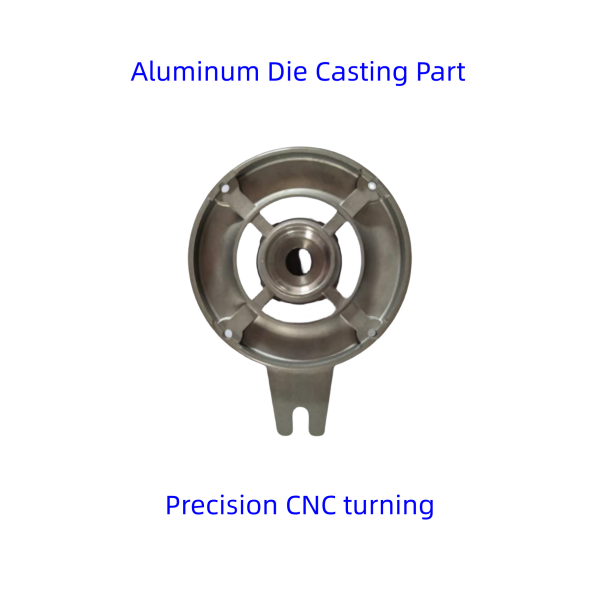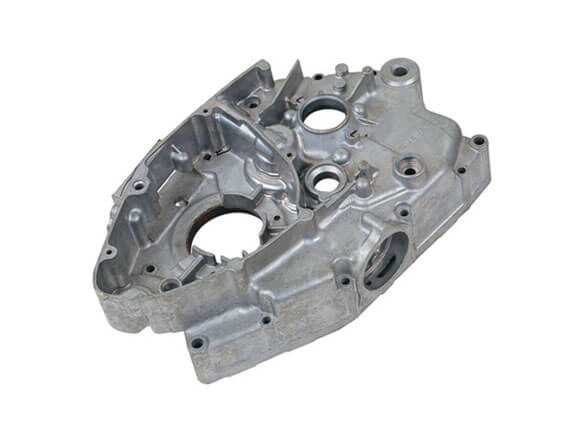Understanding how an Aluminum Foundry maintains durability standards
Wiki Article
The Future of Light Weight Aluminum Foundries: Advancements and patterns Forming the Sector
The aluminum factory market is undertaking substantial makeover. Trick fads highlight the relevance of sustainability and effectiveness. Developments in smart manufacturing and automation are becoming prevalent. Factories are significantly concentrated on utilizing recycled products. This change elevates concerns concerning future techniques and technologies. Exactly how will these changes impact manufacturing techniques and market dynamics? The answers may redefine the industry landscape in unanticipated means.Advancements in Smart Manufacturing Technologies
As the aluminum factory sector develops, advancements in clever production innovations are becoming progressively crucial for enhancing performance and efficiency. The combination of automation, expert system, and the Internet of Things (IoT) is transforming typical factory operations. These modern technologies enable real-time tracking of procedures, permitting immediate adjustments that maximize output and decrease waste.Additionally, machine knowing formulas evaluate production data to recognize patterns and anticipate upkeep needs, lessening downtime. Robotics are progressively employed for repeated tasks, freeing knowledgeable employees to concentrate on more complicated obstacles. Additionally, electronic doubles-- digital designs of physical processes-- facilitate simulations that can improve design and operational strategies.
The adoption of these clever manufacturing technologies is driving affordable advantages in the aluminum foundry market. By streamlining process and improving decision-making abilities, foundries can satisfy expanding market demands while maintaining premium criteria. The future of light weight aluminum shops is without a doubt linked to these technical innovations.
Accepting Eco-Friendly Products and Processes
The light weight aluminum factory market is progressively focusing on environmentally friendly products and processes to improve sustainability. This shift consists of the adoption of sustainable material sourcing, energy-efficient production techniques, and effective recycling and waste administration approaches. By integrating these techniques, shops aim to reduce their environmental impact while keeping competition out there.Sustainable Material Sourcing
Exactly how can aluminum factories improve their sustainability efforts? Lasting product sourcing has arised as a vital strategy in accomplishing this goal. By prioritizing recycled light weight aluminum, factories can significantly decrease their ecological impact, as recycled materials require much less power and less sources contrasted to key aluminum manufacturing. Additionally, sourcing products from accredited suppliers who stick to eco-friendly practices advertises accountable mining and lessens ecological impact. Shops are likewise exploring alternative products, such as biopolymers and environment-friendly finishings, to match standard aluminum procedures. Working together with stakeholders, including vendors and environmental organizations, cultivates innovation in sourcing strategies. Inevitably, accepting lasting product sourcing not just aligns with international sustainability goals but additionally placements aluminum foundries as leaders in eco liable production.Energy-Efficient Manufacturing Methods
Light weight aluminum shops are significantly embracing energy-efficient production methods to match their sustainable product sourcing campaigns. These methods focus on decreasing power intake throughout the production procedure. Advanced innovations, such as induction melting and enhanced casting processes, are being implemented to minimize the total carbon impact. In addition, automation and wise production systems enhance operational effectiveness, allowing for better power administration. Factories are additionally checking out the assimilation of renewable resource sources, such as solar and wind, to power their procedures. By focusing on power effectiveness, aluminum foundries not only lower production costs but likewise align themselves with worldwide sustainability goals, guaranteeing an extra environmentally liable technique to aluminum production while meeting the rising need for environment-friendly techniques in the market.Recycling and Waste Administration
Welcoming green materials and procedures, light weight aluminum foundries are prioritizing recycling and waste administration methods to improve sustainability in their operations. By integrating closed-loop systems, these facilities are minimizing waste and maximizing source performance. Scrap light weight aluminum, an easily available material, is being recycled on-site, significantly lowering the need for virgin products and decreasing power usage. Advancements in arranging and processing technologies better facilitate the recycling of aluminum, making sure that even infected materials can be repurposed effectively. Additionally, foundries are taking on sustainable practices such as lowering contaminated materials and advertising making use of biodegradable products for packaging. This commitment to reusing not only decreases environmental impact yet additionally improves the economic viability of light weight aluminum shops in an open market.The Role of Automation and Robotics
Automation and robotics are progressively changing the light weight aluminum factory industry, substantially enhancing manufacturing efficiency. By integrating innovative modern technologies, foundries can decrease labor costs while at the same time enhancing security standards for their labor force. This change not just simplifies operations however likewise positions the sector for sustainable growth in a competitive market.Enhanced Production Effectiveness
Changing manufacturing procedures, the integration of advanced robotics and automation modern technologies has actually ended up being a cornerstone for light weight aluminum shops seeking enhanced performance. These advancements simplify operations, reduce cycle times, and improve product top quality by lessening human mistake. Automated systems can keep track of production lines in real-time, enabling immediate adjustments that maximize output. In addition, robotics assist in the handling of hazardous products, ensuring much safer workplace while boosting throughput. Anticipating maintenance modern technologies likewise add to performance by anticipating equipment failures, thus lowering downtime. Because of this, aluminum foundries can accomplish greater consistency in their products while reacting a lot more quickly to market demands. This welcome of automation is establishing a brand-new criterion for productivity and operational quality within the market.
Decreasing Labor Expenses
The change towards progressed robotics and automation in aluminum shops not just improves manufacturing efficiency however also plays a substantial function in lowering labor expenses. By integrating automated systems, shops can decrease the reliance on manual work, which commonly entails high earnings and training expenses. Robotics improve repeated tasks such as pouring, molding, and ending up, enabling for a greater outcome with fewer personnel. This technical adjustment not just lowers labor-related prices however likewise boosts consistency and quality in manufacturing. Automation can operate around the clock, maximizing operational hours without the linked prices of overtime or change differentials. As a result, aluminum shops can accomplish considerable cost savings while preserving affordable rates in an evolving market landscape.Improving Security Criteria
While conventional aluminum factory operations commonly subject employees to harmful atmospheres, the combination of robotics and automation greatly boosts security criteria within the market. Automated systems can perform high-risk tasks, such as molten steel handling and hefty lifting, reducing human direct exposure to dangerous problems. Furthermore, robotics can run in extreme temperature levels and hazardous atmospheres, effectively lessening the danger of injury. Advanced checking technologies and synthetic knowledge guarantee real-time safety analyses, enabling immediate actions to potential risks. Moreover, automation simplifies process, minimizing the chance of crashes triggered by human error. As a result, the adoption of these modern technologies not only enhances safety and security but additionally promotes an extra reliable and efficient functioning environment in light weight aluminum foundries.Enhancing Power Performance in Manufacturing
As aluminum shops seek to preserve competitiveness in an evolving market, enhancing power effectiveness in production has become an essential emphasis. By embracing advanced innovations such as high-efficiency melting heating systems and automated temperature level controls, foundries can especially lower power intake. Executing real-time surveillance systems permits for accurate monitoring of power usage throughout the production process, allowing quick adjustments to enhance effectiveness.Furthermore, changing to alternative power sources, consisting of eco-friendly choices, can better decrease the carbon impact. The assimilation of energy recovery systems, which redeem waste heat for reuse, is becoming significantly find out common. Educating employees in power management methods assures that everybody involved in the manufacturing process bears in mind power usage.
These efforts not only lower operational costs but likewise align why not try these out with international sustainability goals, positioning aluminum shops as responsible gamers in the market while boosting their total competition. - Aluminum Casting Company
Advancements in Recycling Light Weight Aluminum
Innovations in recycling aluminum have acquired momentum alongside efforts to boost power performance in manufacturing. The light weight aluminum sector has accepted innovative technologies that streamline the recycling procedure, decreasing energy consumption and ecological effect. Strategies such as hydrometallurgy and brand-new sorting technologies enhance the removal of light weight aluminum from scrap, enhancing yield rates and ensuring greater high quality recycled product.
Additionally, the development of closed-loop recycling systems enables factories to reuse light weight aluminum without substantial deterioration in high quality, making the process more lasting. Technologies in logistics and collection, consisting of boosted monitoring systems and automated sorting, have actually also played an essential function in increasing the effectiveness of aluminum recovery. These advancements not only add to a round economy yet likewise assist mitigate the carbon footprint connected with aluminum manufacturing. As the demand for lasting practices grows, these technologies place the aluminum shop market as a leader in accountable source administration.
Replying To Market Needs and Consumer Trends
Adaptability has become a keystone for light weight aluminum foundries reacting to progressing market demands and consumer patterns. As industries increasingly prioritize sustainability, light weight aluminum factories are changing towards environment-friendly practices, consisting of enhanced reusing procedures and decreased carbon impacts. This shift straightens with consumer choices for ecologically liable products, driving foundries to introduce their offerings.Additionally, the surge of lightweight products in automotive and aerospace industries demands improvements in aluminum alloys and casting methods. Shops are spending in r & d to create high-strength, lightweight elements that fulfill strict efficiency standards.
Additionally, personalization has gained grip, with consumers looking for customized remedies. Aluminum factories are leveraging sophisticated production innovations, such as 3D printing, to accommodate details client requirements effectively. This responsiveness not just pleases customer needs but also placements light weight aluminum shops competitively in a dynamic market landscape, guaranteeing their importance in an ever-changing commercial setting.

Frequently Asked Inquiries
Exactly How Do Aluminum Foundries Influence Citizen Economies?
Aluminum foundries considerably influence neighborhood economic situations by developing work, boosting need for regional vendors, and adding to neighborhood growth. Their procedures often lead to increased tax obligation incomes, which can fund essential public solutions and facilities improvements.What Are the Security Laws for Aluminum Factory Workers?
Safety and security guidelines for aluminum shop workers consist of compulsory personal safety equipment, appropriate ventilation systems, routine training on unsafe products, and adherence to guidelines established by work-related wellness and security managements to lessen risks and assurance worker security. - Aluminum FoundryHow Does Light Weight Aluminum Recycling Affect Global Supply Chains?
Aluminum reusing substantially decreases need find out for raw materials, boosts source effectiveness, and supports rates. This shift effects international supply chains by fostering a circular economic situation, promoting sustainability, and ensuring an extra resistant industry in changing markets.What Career Opportunities Exist in the Light Weight Aluminum Shop Market?
Numerous profession possibilities exist in the aluminum foundry sector, consisting of functions in design, quality assurance, manufacturing monitoring, and r & d. Knowledgeable labor positions such as mold manufacturers and machine operators are also popular.Just How Do International Trade Policies Influence Aluminum Foundries?
International profession plans greatly influence aluminum factories by affecting import tolls, supply chain characteristics, and market gain access to. These factors can affect functional costs, competition, and overall profitability within the worldwide light weight aluminum manufacturing landscape.By prioritizing recycled aluminum, foundries can greatly reduce their environmental footprint, as recycled products require much less power and less resources compared to main aluminum manufacturing. Aluminum factories are increasingly adopting energy-efficient manufacturing strategies to complement their sustainable material sourcing initiatives. Automation and robotics are increasingly changing the light weight aluminum factory market, considerably enhancing manufacturing performance. The change towards progressed robotics and automation in light weight aluminum factories not only boosts manufacturing effectiveness however also plays a significant duty in lowering labor prices. As light weight aluminum foundries look for to preserve competitiveness in an evolving market, improving energy efficiency in production has actually arised as a critical focus.
Report this wiki page